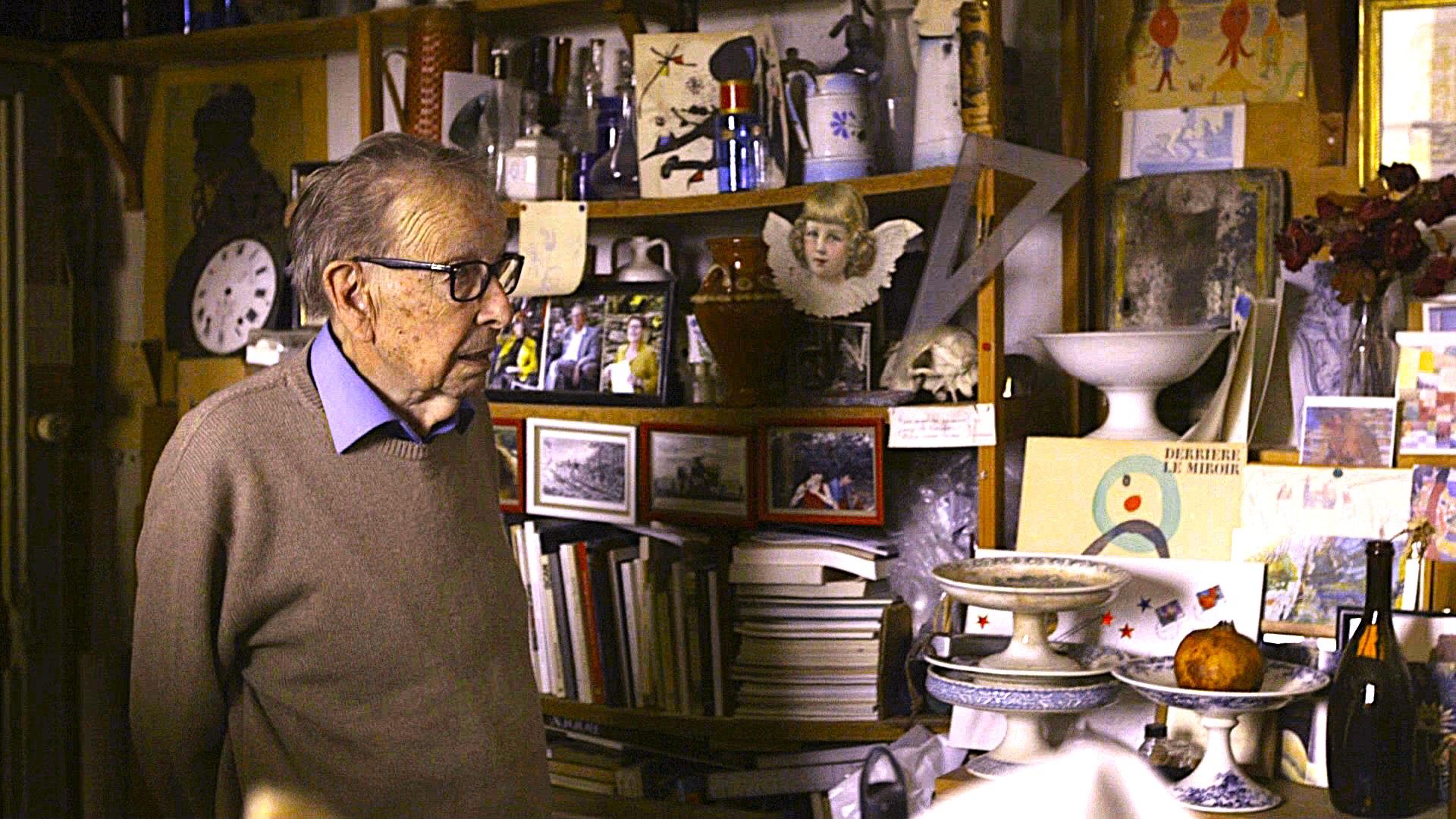
Poet, writer and translator, Philippe Jaccottet at home.
Francesco Ferri
On the occasion of the hundredth anniversary of his birth, the Swiss poet and translator, winner of the Schiller and Goncourt awards, is praised by new editions of his works and several events in Rome and Geneva. Portrait with three voices.
In February 1998, when I met Philippe Jaccottet at the Swiss Cultural Center in Milan, during the launch of the Italian translation of his work In winter light /thoughts under the clouds Directed by Fabio Pusterla for Marcos y Marcos, the Swiss French poet and prosecutor told me that his life had changed after having seen “a cognass by the roadside, a fairly rare tree that I had never seen in flowers”.
I hurried to move on. I asked a few questions before reading, then listened to his voice, his bothed worms, burst, oscillating between physical fragility and inner strength, and which still resonate in me, anchored that they are in this very personal direction of the Litote.
This June 30, 2025 marks the centenary of the birth of Philippe Jaccottet, “clear, reserved man, reserved and in no way poser, who was wary of any form of intellectual exhibitionism”, according to the Ticino poet Fabio Pusterla, his translator and friend. At the end of the month, the Rousseau house in Geneva welcomes a meeting entitled “Philippe Jaccottet, the concern and the party” and a conference is scheduled in Rome for the fall.
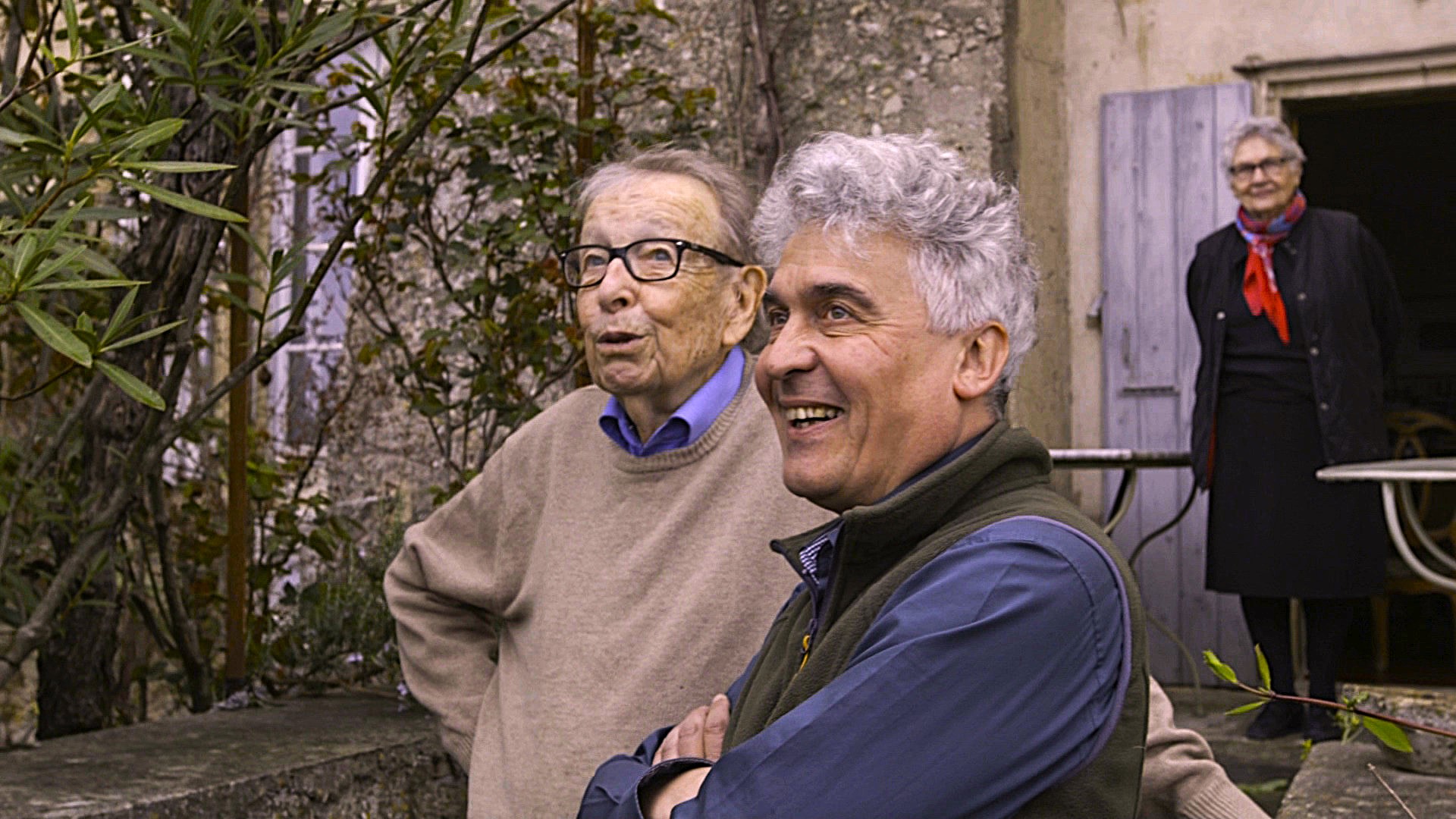
Philippe Jaccottet with the Ticino poet Fabio Pusterla.
Francesco Ferri
Winner of prestigious prizes, including the Grand Prix Schiller and Goncourt, Jaccottet was born in Moudon, in the canton of Vaud, on June 30, 1925. He studied letters in Lausanne, before settling in Paris, left in 1953 for Grignan, medieval village of Haute-Provence bathed in nature, where he will live with his painter until his death on February 24 2021, at 95 years old. This nature was his breath.
“Jaccottet was a very fine observer of physical nature, but almost simultaneously, he thought about metaphysical passages, perhaps illusory or, once again, of ‘thresholds” that his sharp senses sometimes seemed to detect-at certain privileged moments “, explains John Taylor, American poet who translated the poetry and the prose of the prose Greenery. A project that led to the ambitious bilingual volume And, Nonetheless: Selected Prose and Poetrywhich includes almost all of Jaccottet’s literary prose between 1990 and 2009.
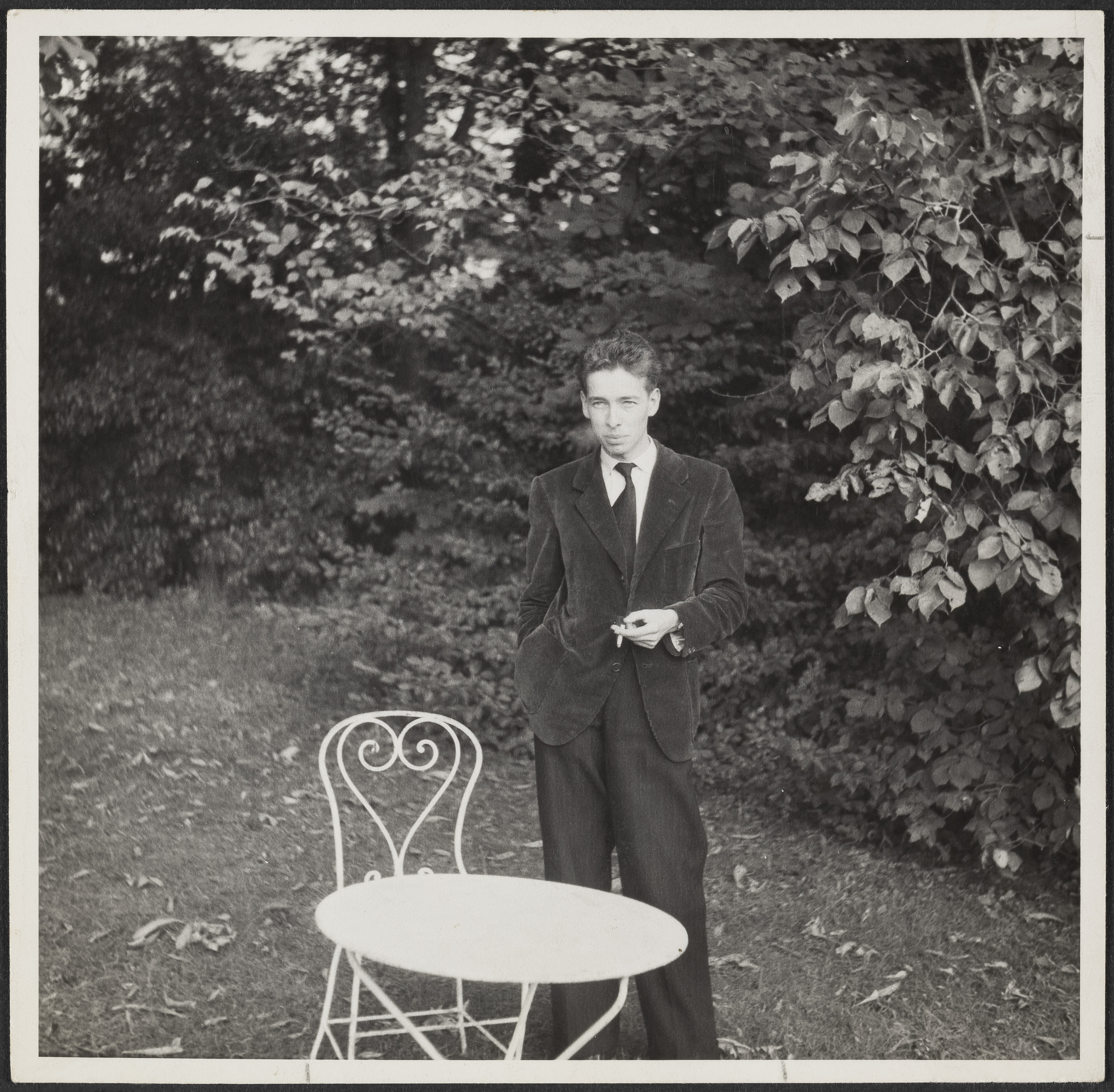
Portrait of Philippe Jaccottet by publisher Henry-Louis Mermod, 1946.
Center for literature in French-speaking Switzerland, Unil, Henry-Louis Mermod funds
Taylor adds that in reality, the great author was wary of his own metaphysical inclinations. “It is useful to see him as an empiricist of ancient Greece aspiring to clairvoyance and aware of the illusions and self-illusions that may arise from this aspiration.”
In her dry lyricism lies a “very strong attempt to question the landscape. He seeks to find the secret of poetic speech, explains Fabio Pusterla. In a poem, he says: ‘I would have liked to speak without images’. Impossible, the images are necessary. But according to Jaccottet, they risk being too complacent and diverting us. Whenever he thinks he has found the right image, he refutes it, for fear that it will freeze in an overly literary form. ”
Defining it as a poet of nature is reductive, he is rather “a writer who meditates on our relationship with nature and on the possibilities (and impossibilities) to explore ‘honestly’ this relationship by means of words”, insists John Taylor.
Europaea
Jaccottet was an authentic European man of letters, among the rare French -speaking authors to have entered during his lifetime in the Pleiade. He occupied a prominent place in the 20th century European literary culture by leading a prolific and admirable translator activity.

Reading notes on the origin of muses maintenance.
Laurent Dubois © BCU Lausanne
“He spoke several languages and translated them; He read all kinds of European books and attacked deep philosophical questions that have long concerned other conventional poets and writers on the continent, in particular, but not only, Rilke and Hölderlin, “notes John Taylor. In addition to the German classics, including the whole work of Musil, he translated Homer into French, of Italian poetry (Tasso, Leopardi, Ungaretti especially), Spanish, Czech texts, and even the haikus of Basho and Issa. He embarked on the translation of Mandelstam, who had dazzled him like a meteor.
At the Frankfurt Book Fair, Jaccottet’s soft voice had ignited by evoking the Russian poet, remembers Fabio Pusterla, then by his side. “He got up, changed your tone and said: ‘When I think of Mandelstam, I imagine him at the bottom of the steppe, about to die, saying to us:’ Standing, standing, even in the worst adversity! ” ‘.
When John Taylor came to find him, he asked him how he had managed to carry out all his translation and critic work in parallel to his writing work. “Having his shoulders, he replied with a simple ‘I don’t know’.”
This laconic answer, continues John Taylor, “reveals all the work, fatigue and the financial concerns implied by the translation, of the elements which he sometimes explicitly formulates in his correspondence with Ungaretti (Correspondence 1946-1970)».
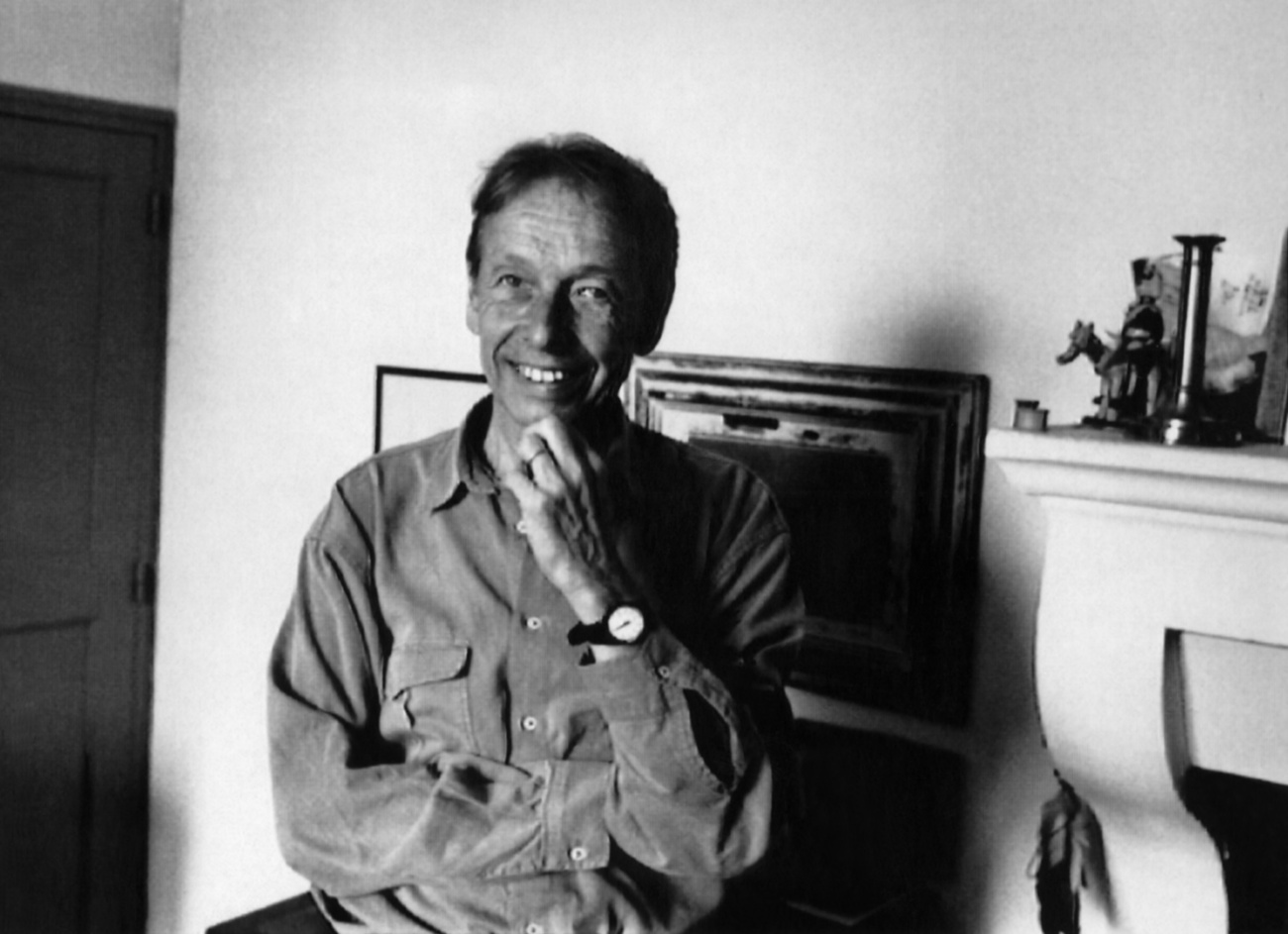
Philippe Jaccottet in 1991 after receiving the Grand Prix of the Vaudoise Foundation for Culture.
Keystone/Mario Del Curto
Being Swiss
In a way, Jaccottet was rooted in the culture of his native land. “He has always paid great attention to what came from French -speaking Switzerland,” says Fabio Pusterla. A critic had suggested the idea that having grown up in a context strongly influenced by Calvinism, Calvinist thought may have played a role in its more direct relationship with the Old Testament. ”
What is more, his Swiss childhood allowed him to tackle “very early, because of the school”, the German language and literature, which he then deepened under the leadership of his master Gustave Roud, with whom he maintained a lasting relationship dictated by reciprocal benevolence.
Before his death, he had entrusted his papers to the center of literature in French -speaking Switzerland (CLSR) of the University of Lausanne. “I think that this choice stems from its uninterrupted link with its native land, but also practical considerations,” says Fabio Pusterla. The center works very well. ” The fund was immediately cataloged and made available to research.
Reading Jaccottet today has a very special flavor. “We have entered an era of partisan and unequivocal discourse, language robotization, tiny symbols embodying complex emotions,” notes John Taylor. In contrast, Jaccottet’s writing is always nuanced, attentive, patient, circumspect and in a sincere quest for essential truths. ”
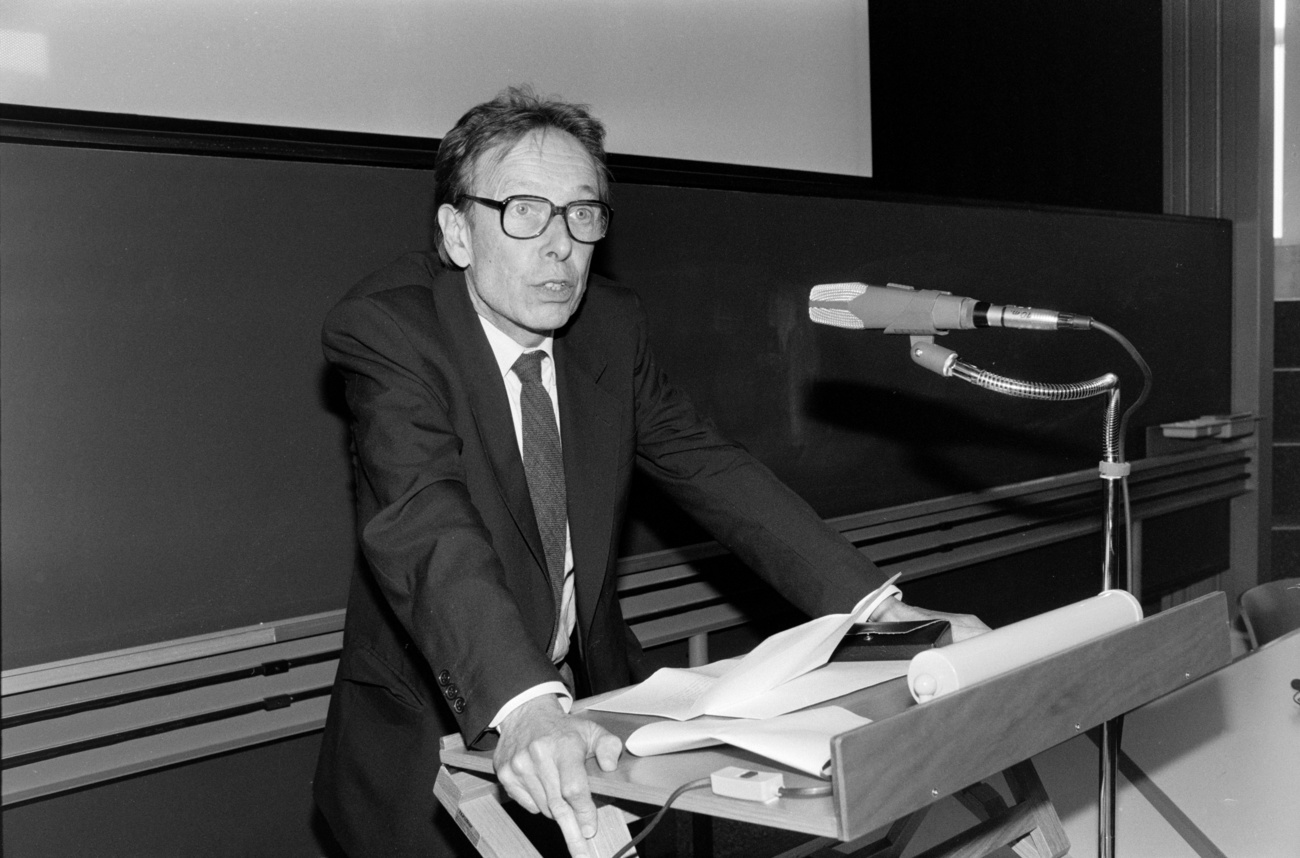
On October 30, 1988 in Lausanne, the Lémanic translation prize was awarded to the poet who made himself known in this area with translations of works by Musil, Hölderlin, Muschg and Thomas Mann, in particular. The photo shows Philippe Jaccottet during his speech for the award ceremony.
Keystone/Str
In doubt and uncertainty, between the inexpressible threads of things, and in this rustling of the bloom in flowers which changed the life of the poet. The image of the cognassier appears in a personal test that Taylor has translated, Blason in Green and White.
“What Jaccottet said to you,” notes John Taylor, brings back to the central point of number of his prose writings: what is the deep meaning of these privileged moments where, suddenly, we see something and where we have the impression that the ‘thing seen’ offered us more than its only materiality, than a kind of ‘threshold’ to us. But almost immediately, we wonder: is this impression of an ‘elsewhere’ not pure illusion? ”
Text reread and verified by Daniele Mariani and Eduardo Simantob, translated from Italian by Pierre-François Besson/DBU

